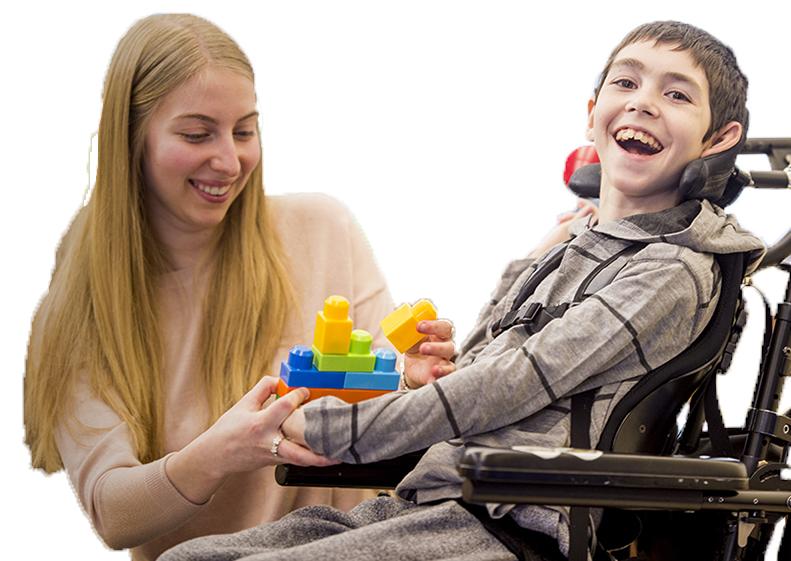Resources Directory
Search below to find a hospital, doctor, therapy, and more

Child Health and Development, Center for (CCHD), KS
Mission Statement: Advancing the health, development, and well-being of children at risk or who have developmental disabilities and supporting their families through the provision of: (1) exemplary clinical service; (2) interdisciplinary leadership training; (3) outreach training and technical assistance and (4) collaborative academic research. Services include but are not limited to:
Our Evaluation Process: The CCHD at KUMC offers a variety of clinics and services to children and families who are in need of evaluation, diagnosis, and follow up for Autism Spectrum Disorders (ASDs), Developmental Disabilities, and behavioral health problems. The CCHD also serves children with special health care needs.
Professionals, along with the family, develop a thorough understanding of the child’s strengths and needs. Many children and youth come to the CCHD with developmental and/or behavioral concerns. The goal is to accurately diagnose the problem, understand the reasons and recommend the most effective treatments.
An interdisciplinary team approach to the diagnosis and management of ASDs, DDs, and other childhood diagnoses ensures a thorough evaluation for each child. You can expect that you, your child, and your family will be treated with respect, that your questions will be answered as completely as possible, and that the team will provide a treatment and follow up plan designed to fit the needs of your child as well as your family. Your team may include professionals and/or trainees from any of the following disciplines:
Developmental Pediatrics
Psychology
Nursing
Physical Therapy
Occupational Therapy
Social Work
Speech Language Pathology
Nutrition
Audiology
Developmental Medicine Clinic: A subspecialty clinic staffed by pediatricians who have expertise in developmental and behavioral problems of children and adolescents. The purpose of the clinic is to carefully and thoughtfully evaluate children with developmental disabilities. A comprehensive approach to the child and family well-being is employed. Diagnosis, medical evaluation, and treatment recommendations are provided. The faculty members are board certified in developmental-behavioral pediatrics, which is a subspecialty of pediatrics. Patients may be seen by Fellows, who are board certified pediatricians in training to become developmental-behavioral pediatricians, and who are supervised by faculty.
Developmental Behavioral Support Clinic: The purpose of this clinic is to provide treatment services to children with developmental disabilities for such problems as temper tantrums, self-injurious behaviors, sleeping problems, toileting issues, noncompliance, and meal-time issues. Generally, families are scheduled for several visits. The first visit is for assessment, with a majority of the session spent gathering specific information about behaviors. This clinic typically includes parent training as a prior component, with expectations that families will implement and practice strategies in the home, which will be discussed at follow-up visits.
The Feeding Clinic – evaluates and makes recommendations for a wide range of feeding problems resulting from a child’s developmental disability or chronic illness. Feeding problems can be caused by a range of complex and interrelated reasons. If undiagnosed and untreated, feeding problems can adversely affect a child’s growth and development. Some examples of feeding problems include (but are not limited to): difficulty in tolerating textures, presence of tongue thrust or bite reflex, difficulty with positioning, and disruptive, undesirable behaviors at mealtime.
NICU Developmental Follow Up Clinic – Babies who are born early are at increased risk for behavior, mobility, communication, and learning difficulties. The follow-up clinic provides developmental evaluation for children who have graduated from the Neonatal Intensive Care Unit (NICU). Early diagnosis and intervention are important for the future development of any child at risk for developmental disabilities. The NICU clinic serves infants primarily under 12 months of age (adjusted age). Appointments for this clinic are made through the NICU medical home provider. Offers evaluation by an interdisciplinary team that may include :
Psychologist
Physical therapist
Nurse Practitioner
Developmental pediatrician and/or a fellow in developmental-behavioral pediatrics
The team will assess the child and make recommendations in the following areas:
Cognitive/problem solving skills
Communication skills
Motor skills
Social Skills Training:
“Girls Night Out” (GNO) is a social skills and self care program for adolescent girls with developmental disabilities, including autism. This is an opportunity for your daughter to interact with other girls her age, learn social skills related to having friends, social conversation, and “hanging out” with other girls, practice skills related to hygiene and appearance, and most importantly….HAVE FUN! It is our hope that your daughter will acquire increased social competence and gain independence with self care skills all while having fun with other girls her age! Below is a list of possible activities that will be part of this program. In addition to the activities, the girls will be creating a “scrapbook” summarizing the activities and skills learned in the group. Possible session topics may include:
Hygiene: taking care of your body, skin, nails, and hair
Learning unwritten social rules
Fashion
Conversation skills
Nutrition and Exercise
Leisure activities
Hair care (visit to salon)
Please visit our website or Contact Us for more information:
